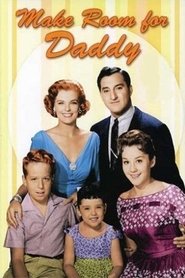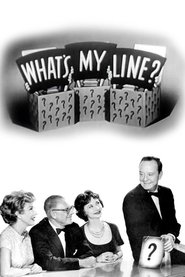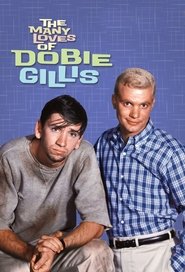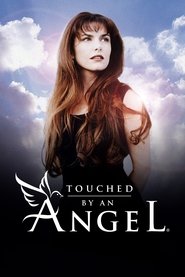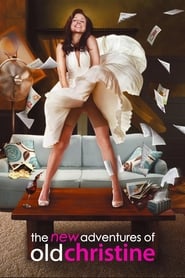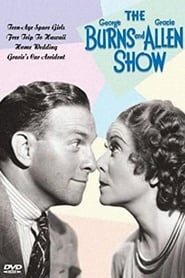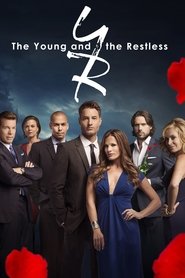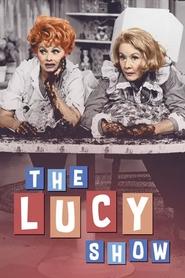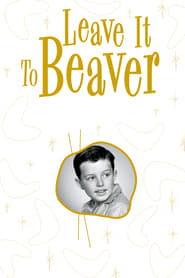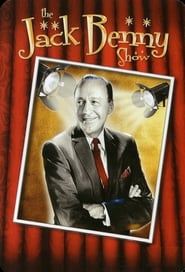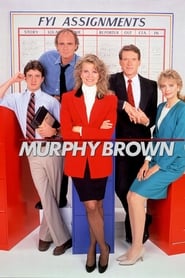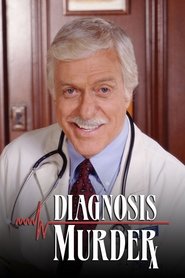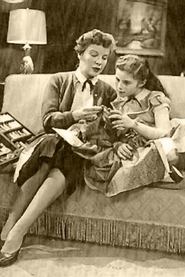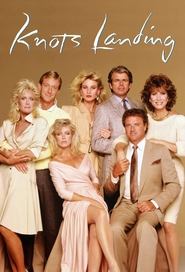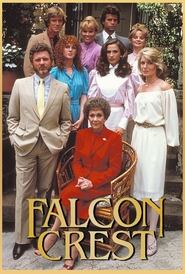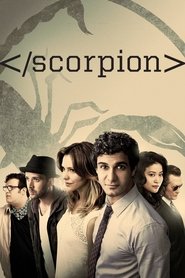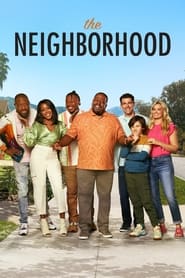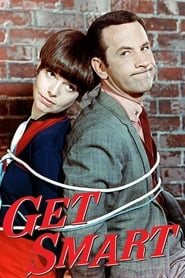Cbs TV Series - Page 5
-
The Danny Thomas Show
1953
star 6Danny Thomas, an entertainer, tries to balance his home life with the needs of his career, with hilarious results. -
What's My Line?
1950
star 6.8Four panelists must determine guests' occupations - and, in the case of famous guests, while blindfolded, their identity - by asking only "yes" or "no" questions. -
The Many Loves of Dobie Gillis
1959
star 5.8The Many Loves of Dobie Gillis is an American sitcom that aired on CBS from 1959 to 1963. The series and several episode scripts were adapted from a 1951 collection of short stories of the same name, written by Max Shulman, who had also written a feature film adaptation of his short stories for MGM in 1953, The Affairs of Dobie Gillis. The series revolved around the life of teenager/young adult Dobie Gillis, who, along with his best friend, beatnik Maynard G. Krebs, struggles against the forces of his life - high school, the military, college, and his parents - as he aspires to attain both wealth and dates with girls. The Many Loves of Dobie Gillis was produced by Martin Manulis Productions in association with 20th Century Fox Television. Creator Shulman also wrote the theme song in collaboration with Lionel Newman. -
The Waltons
1972
star 7.1The Waltons live their life in a rural Virginia community during the Great Depression and World War II. -
Touched by an Angel
1994
star 7.2Monica, an angel, is tasked with bringing guidance and messages from God to various people who are at a crossroads in their lives. -
The New Adventures of Old Christine
2006
star 7Single working mom Christine Campbell has just learned that her ex is dating a much younger woman with the same first name. To avoid any confusion, the new girlfriend is dubbed New Christine, which leaves her with the unfortunate nickname Old Christine. -
The George Burns and Gracie Allen Show
1950
star 6.8Burns and Allen, an American comedy duo consisting of George Burns and his wife, Gracie Allen, worked together as a comedy team in vaudeville, films, radio and television and achieved great success over four decades. -
The Young and the Restless
1973
star 6.9The rivalries, romances, hopes and fears of the residents of the fictional Midwestern metropolis, Genoa City. The lives and loves of a wide variety of characters mingle through the generations, dominated by the Newman, Abbott, Baldwin and Winters families. -
Valiant Lady
1953
star 3Valiant Lady is an American soap opera which ran daily on CBS radio and television from October 12, 1953 to August 16, 1957 at 12:00 PM. The show's title was taken from a 1930s radio soap opera about a young woman struggling through life but is otherwise very different. Like many early soap operas, the show was broadcast live from CBS studios in New York City. The series was created by Adrian Spies; the head writer was Charles Elwyn. -
The Lucy Show
1962
star 7The Lucy Show is an American sitcom that aired on CBS from 1962–68. It was Lucille Ball's follow-up to I Love Lucy. A significant change in cast and premise for the 1965–66 season divides the program into two distinct eras; aside from Ball, only Gale Gordon, who joined the program for its second season, remained. For the first three seasons, Vivian Vance was the co-star. The earliest scripts were entitled The Lucille Ball Show, but when this title was declined, producers thought of calling the show This Is Lucy or The New Adventures of Lucy, before deciding on the title The Lucy Show. Ball won consecutive Emmy Awards as Outstanding Lead Actress in a Comedy Series for the series' final two seasons, 1966–67 and 1967–68. -
Leave It to Beaver
1957
star 7Leave It to Beaver is an American television situation comedy about an inquisitive and often naïve boy named Theodore "The Beaver" Cleaver and his adventures at home, in school, and around his suburban neighborhood. The show also starred Barbara Billingsley and Hugh Beaumont as Beaver's parents, June and Ward Cleaver, and Tony Dow as Beaver's brother Wally. The show has attained an iconic status in the US, with the Cleavers exemplifying the idealized suburban family of the mid-20th century. -
The Jack Benny Program
1950
star 7.7Laugh along with funnyman Jack Benny as he brings his underplayed humor to TV along with regular performers from his radio show days. -
Murphy Brown
1988
star 6.4Murphy Brown (Candice Bergen) is a recovering alcoholic who returns to the fictional newsmagazine FYI for the first time following a stay at the Betty Ford Clinic residential treatment center. Over 40 and single, she is sharp tongued and hard as nails. In her profession, she is considered one of the boys, having shattered many glass ceilings encountered during her career. Dominating the FYI news magazine, she is portrayed as one of America's hardest-hitting (though not the warmest or more sympathetic) media personalities. -
Diagnosis: Murder
1993
star 7.1Dr. Mark Sloan is a good-natured, offbeat physician who is called upon to solve murders. -
Search for Tomorrow
1951
star 6.5Search for Tomorrow is an American soap opera that premiered on September 3, 1951, on CBS. The show was moved from CBS to NBC on March 29, 1982. It continued on NBC until the final episode aired on December 26, 1986, a run of thirty-five years. At the time of its final broadcast, it was the longest-running non-news program on television. This record would later be broken by Hallmark Hall of Fame, which premiered on Christmas Eve 1951 and still airs occasionally. The show was created by Roy Winsor and was first written by Agnes Nixon for thirteen weeks and, later, by Irving Vendig. -
Knots Landing
1979
star 6.7The domestic adventures, misdeeds and everyday interactions of five families living on a cul-de-sac in a small California community. -
Falcon Crest
1981
star 5.5Falcon Crest is an American primetime television soap opera which aired on the CBS network for nine seasons, from December 4, 1981 to May 17, 1990. A total of 227 episodes were produced. The series revolves around the feuding factions of the wealthy Gioberti/Channing family in the Californian wine industry. Jane Wyman starred as Angela Channing, the tyrannical matriarch of the Falcon Crest Winery, alongside Robert Foxworth as Chase Gioberti, Angela's nephew who returns to Falcon Crest following the death of his father. The series was set in the fictitious Tuscany Valley northeast of San Francisco. -
Scorpion
2014
star 8.2Eccentric genius Walter O’Brien and his team of brilliant misfits comprise the last line of defense against complex, high-tech threats of the modern age. As Homeland Security’s new think tank, O’Brien’s “Scorpion” team includes Toby Curtis, an expert behaviorist who can read anyone; Happy Quinn, a mechanical prodigy; and Sylvester Dodd, a statistics guru. -
The Neighborhood
2018
star 7.6The nicest guy in the Midwest moves his family into a tough neighborhood in Los Angeles where not everyone appreciates his extreme neighborliness. That includes their new next-door neighbor Calvin. -
Get Smart
1965
star 7.9Get Smart is an American comedy television series that satirizes the secret agent genre. Created by Mel Brooks with Buck Henry, the show stars Don Adams, Barbara Feldon, and Edward Platt. Henry said they created the show by request of Daniel Melnick, who was a partner, along with Leonard Stern and David Susskind, of the show's production company, Talent Associates, to capitalize on "the two biggest things in the entertainment world today"—James Bond and Inspector Clouseau. Brooks said: "It's an insane combination of James Bond and Mel Brooks comedy." This is the only Mel Brooks production to feature a laugh track. The success of the show eventually spawned the follow-up films The Nude Bomb and Get Smart, Again!, as well as a 1995 revival series and a 2008 film remake. In 2010, TV Guide ranked Get Smart's opening title sequence at No. 2 on its list of TV's Top 10 Credits Sequences, as selected by readers.
